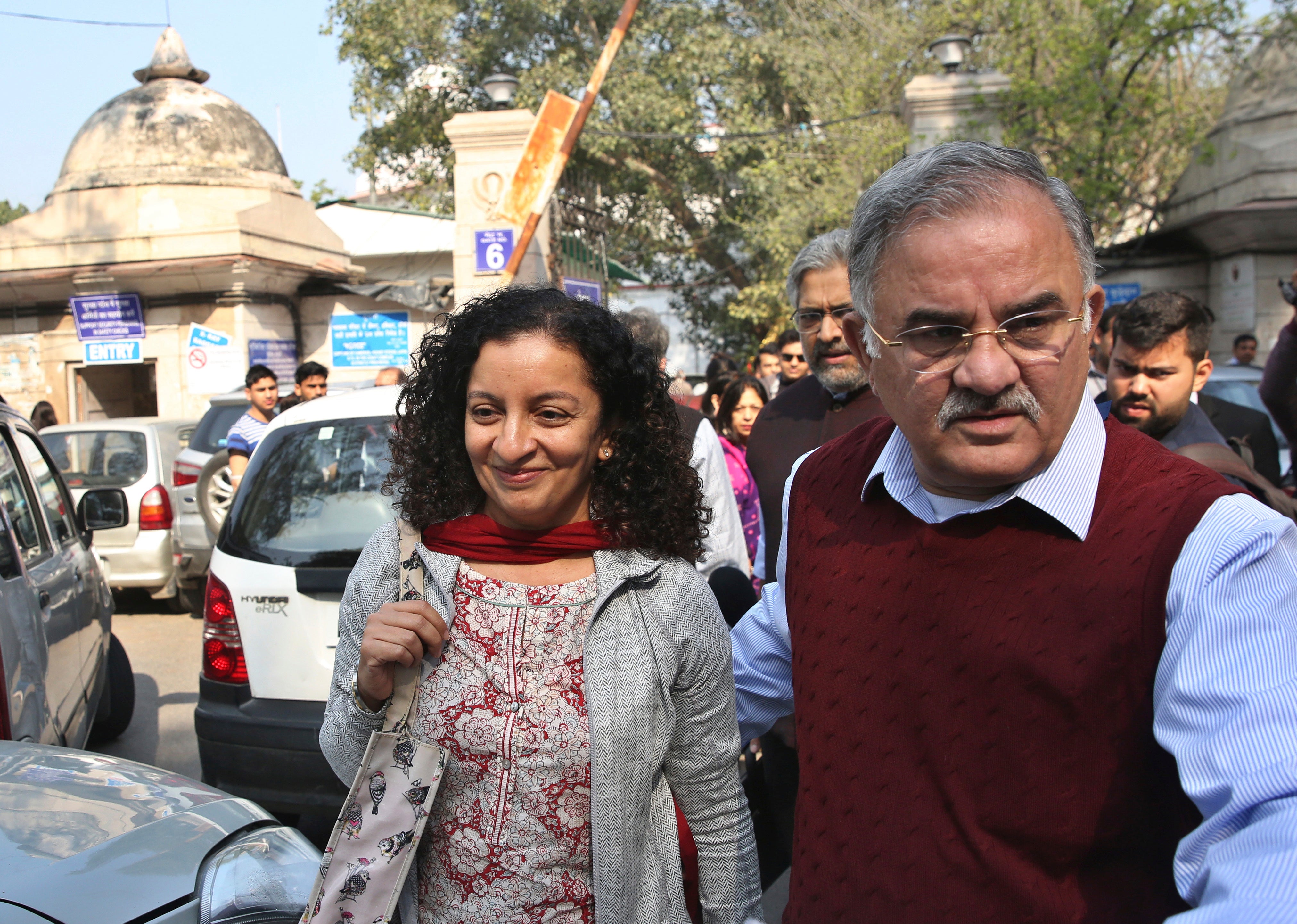Indian journalist acquitted of defamation in #MeToo case
A New Delhi court has acquitted a female journalist of criminal defamation after she accused a former editor-turned politician and junior external affairs minister of sexual harassment

Your support helps us to tell the story
From reproductive rights to climate change to Big Tech, The Independent is on the ground when the story is developing. Whether it's investigating the financials of Elon Musk's pro-Trump PAC or producing our latest documentary, 'The A Word', which shines a light on the American women fighting for reproductive rights, we know how important it is to parse out the facts from the messaging.
At such a critical moment in US history, we need reporters on the ground. Your donation allows us to keep sending journalists to speak to both sides of the story.
The Independent is trusted by Americans across the entire political spectrum. And unlike many other quality news outlets, we choose not to lock Americans out of our reporting and analysis with paywalls. We believe quality journalism should be available to everyone, paid for by those who can afford it.
Your support makes all the difference.A New Delhi court on Wednesday acquitted a female journalist of criminal defamation after she accused a former editor-turned-politician and junior external affairs minister of sexual harassment
M.J. Akbar, now 70, filed a case against journalist Priya Ramani in October 2018, denying the allegations as “false, baseless and wild.”
Ramani was the first to accuse Akbar of harassment, spurring more than 20 women to come forward and allege similar accusations during his previous career as one of the country’s most prominent news editors. A few days later, Akbar resigned from his post as a junior external affairs minister in 2018, becoming one of the most powerful men to fall in India’s #MeToo movement at the time.
On Wednesday, the court observed that “even a man of social status can be a sexual harasser,” and that the “right of reputation can't be protected at the cost of right to dignity,” according to the legal news website Bar and Bench.
The string of allegations against Akbar began with a tweet from Ramani in October 2018 in which she identified him as the man who had harassed her in an article she wrote for Vogue India the previous year. She had not named him in that article.
More than a dozen women, mostly journalists who worked with Akbar or interviewed with him for jobs when he was an editor, then accused him of sexual harassment.
“She spoke up, she has not been afraid of standing in court and answering all the questions - she hasn’t swayed once,” Namita Bhandare, a journalist and close friend to Ramani, told The Associated Press.
Akbar, who has consistently denied all allegations, first served as a lawmaker for India’s then-ruling Congress party between 1989 and 1991. After that, he edited the Telegraph, The Asian Age and other newspapers and wrote several nonfiction books, becoming one of the most influential people in Indian news media. In 2014, he joined the now ruling Bharatiya Janata Party and was appointed its national spokesman. In 2016, he joined the Ministry of External Affairs in 2016 as its junior minister.
“This victory is important because a powerful person with all the legal resources at his disposal took the most draconian route - he filed a criminal case against her, not civil,” Supreme Court lawyer Karuna Nundy said.
“So this win has a strong salutatory effect. It opens up a greater space for telling the truth and not to fear legal bullying,” she added.
Ramani's allegations were a pivotal moment in the #MeToo movement in India, which picked up pace in 2018 as a spate of actresses and writers flooded social media with allegations of sexual harassment and assault.
Frustrated over an anti-harassment law that activists say has done little to change the status quo, women took to social media to lament a system that has failed to hear them. The Sexual Harassment of Women at Workplace Act of 2013 holds workplaces liable for sexual harassment and prescribes a system for investigating and redressing complaints.
The movement has helped bring awareness to the legislation, according to Nundy.
“Many more companies in the organized sector have put in anti-harassment committees and more are aware of this law now,” she said. But she cautioned that more work needs to be done to tackle harassment in formal and informal workplaces.